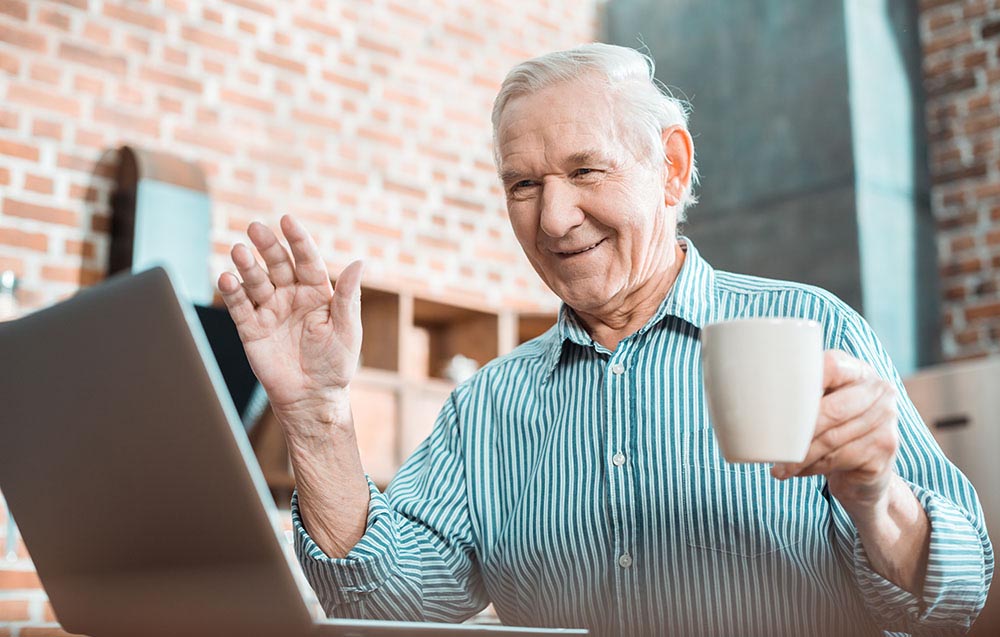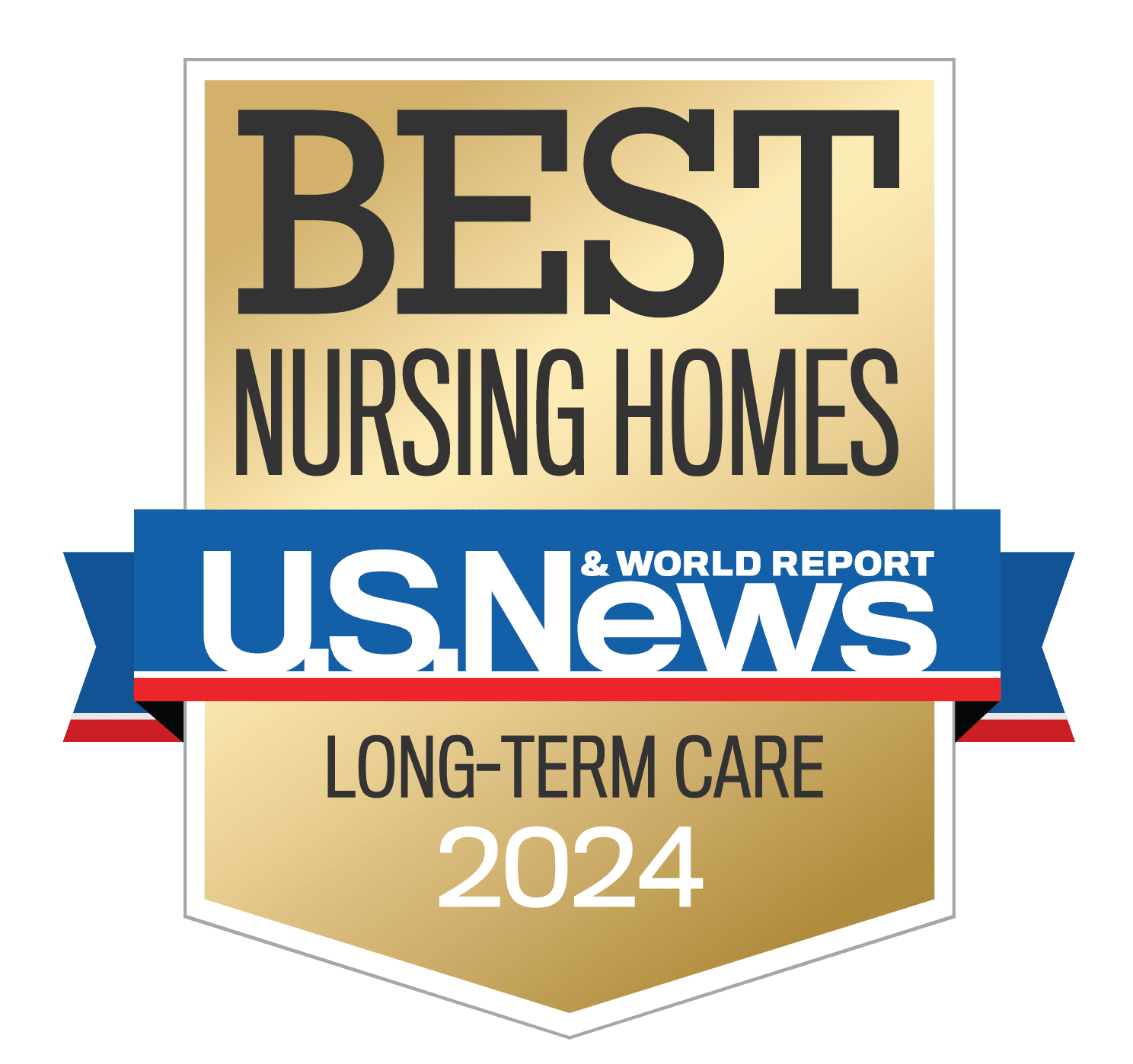Nursing homes have doubled down on their safety procedures. Every surface is cleaned more often. Every member of the staff is tested and checked for infections. Visitors, unfortunately, are not allowed in the building. With all those precautions, there was one remaining flaw in the defense plan: what if a doctor showed up to care for a resident and had COVID-19 without knowing it?
Doctors are at increased risk of being exposed to the virus, especially if they work at a hospital. Because of this, a doctor’s visit could be even more dangerous than if a family member showed up. Thankfully, there is a simple solution! Telemedicine solves the problem by giving doctors a way to speak with patients that doesn’t involve any personal contact.
In this series I explored what telemedicine is and why it benefits nursing homes so much. This final installment explains how it fits in with the innovative care at The Maplewood, and also shares how a decision that we made many years ago is having a big impact right now.
Innovative Patient Care
Myself and the Maplewood team all work hard to make sure that our residents feel at home. That can and does mean that we have beautiful rooms and serve delicious food, but it also means that we are always innovating.
What does innovation look like at The Maplewood? It could be anything from a complex new technology to a simple insight about how our residents feel. For example, even something as mundane as patient records have seen plenty of improvement. Years back, record keeping
meant stacks of paper on clipboards. Now you’ll see our nurses recording blood pressure numbers and checking off their to-do lists on an iPad. This simplifies things a lot. All that information is stored and well-organized, making it is easy to ensure that your loved one receives the right medication at the right time, every day.
Innovation also shows up in the tools we use to communicate. Resident needs inform our decisions about which technologies to invest in. A separate blog post talked about the Google Chromebooks that we started using for video chats between residents and families. That effort has been very successful. The ways we connect with each other have changed quickly, giving us all more options now than ever before.
Telemedicine takes those improvements in communication technology and applies them to medicine. It offers a way to provide a high level of care to residents while still keeping them very safe. That’s a win for everyone! Our culture of embracing technology and our team’s comfort with learning new ways to do things made the transition to telemedicine quick and easy. Another part of what let us implement telemedicine so well was our decision years ago about how to set up our nursing home.
The Surprising Benefit of Private Rooms
The Maplewood team made a decision a decade ago to transition all our residences to private rooms. We are proud to maintain private rooms because of our belief that every person deserves dignity and respect. We know that privacy supports dignity, which is important when loved ones face life changes and may be dealing with medical needs. Privacy allows residents to have control over more of their life. Whether you are having a bad day or a good day, you can keep that between you and your nurse, and focus on the things you enjoy.
Privacy also allows increased freedom and a stronger a sense of ownership. This helps our residents feel at home in their room right away. The first night in an unfamiliar place can feel uncomfortable—it takes time to settle in. A shared living space can make settling in more difficult. We want our residents to have an excellent nursing experience from the minute they arrive, which is another reason why it is important to us to offer each person their own living space.
Many of our rooms have direct access to the outdoors. This will make family visits easy and safe as we all start to reopen. Visitors will be able to spend time with their loved ones right by their room, without any need to go inside. This would not be the case in a shared-room setting, where visitors for one resident could interrupt their neighbor.
Privacy is more important now than ever. It is much safer to have your own room, of course, but it also makes the transition to individual care much more pleasant. Maplewood residents are not gathering in groups to dine or exercise the way they normally would. Instead, we are providing private sessions for things like physical therapy and rehabilitation.
Private rooms give us the flexibility to easily provide telemedicine care visits to each and every resident. Those visits can happen whenever necessary. There is no need for residents to move to a different room in order to have a telemedicine visit with their doctor or to have personal medical conversations within earshot of a neighbor. If your loved one needs a late-night consultation, perhaps about a new pain medication to help with a sore shoulder after a surgery, someone on the Maplewood staff can easily facilitate that call with a doctor. Not only is there no risk of waking up a nearby neighbor, but private rooms ensure that your conversations are completely confidential too.
The decision to provide private rooms to each resident has been worthwhile in many ways. Although we could not have known about this pandemic when we made that decision, we’re grateful we went this route. Private rooms help us use telemedicine to provide better care to
our residents—that’s what we’re all about.
The Right Tool at the Right Time
Sudden challenges require nimble solutions. While the COVID crisis has been a difficult time for everyone, nursing homes faced a particularly trying set of obstacles. Here at the Maplewood, we had two advantages in our favor: a smart, adaptable team with a history of innovation, and a beautiful, modern facility built to help us provide the best care possible. Both of those things set us up to make the most of telemedicine. It has been a huge help in the ongoing effort to care for residents in the midst of increased danger. I am grateful to the team and proud of our work, but more than anything I am glad to see our residents safe and happy.



